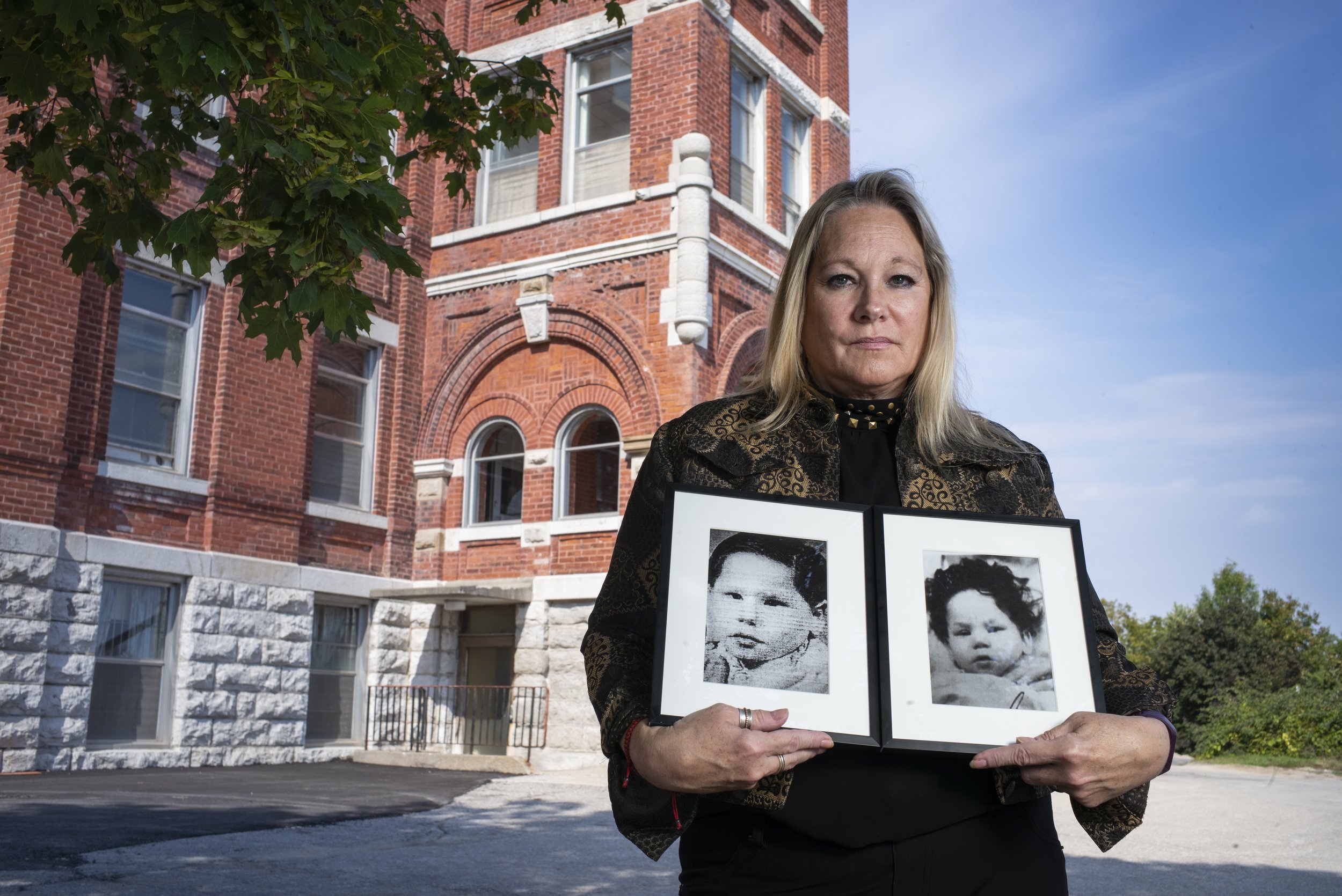
UNLOVED:
huronia’s forgotten children
PLAY TRAILER
WATCH NOW
Running Time: 90 mins
Year: 2022
synopsis
Filmmaker Barri Cohen leads part detective story, part social history in UNLOVED - HURONIA'S FORGOTTEN CHILDREN as she uncovers the truth about Alfie and Louis, her two long-dead half-brothers. They were institutionalized at the Huronia Regional Centre in Orillia in the 1950s, with one brother unceremoniously buried in secret in an unmarked grave as a small child. Their lives were cut short, but their story stands as a microcosm of the immense tragedy of the Western World's 20th-century disastrous treatment of intellectually disabled children and youth. Through the interwoven narratives of a POV family story with critical institution survivors, a question preoccupies the film: how do we allow ourselves to dehumanize the most vulnerable people in our care?
UNLOVED - HURONIA'S FORGOTTEN CHILDREN is a heartbreaking yet redemptive work that moves outwards from a highly personal and painful family secret to an investigation of hidden, searing truths about an entire government-enabled system of institutional cruelty and ugliness against vulnerable children. Yet, humanity is hopefully restored by assembling community and survivor testimony, along with the filmmaker's insistence that these experiences be fully recognized and memorialized.
Credits
Written and Directed by Barri Cohen
Produced by White Pine Pictures
In Association with documentary Channel
Producer Craig Baines
Executive Producers Barri Cohen, Peter Raymont, Steve Ord
Director of Photography James Kinistino
Editor Sarah Peddie
Composer Michelle Osis
Produced with the participation of the Canada Media Fund,
Rogers Documentary Fund, Ontario Creates
With the Assistance of The National Film Board of Canada and The Canadian Film or Video Production Tax Credit
Marketing and promotion assistance provided by Telefilm Canada
Publicist Ingrid Hamilton, GAT PR
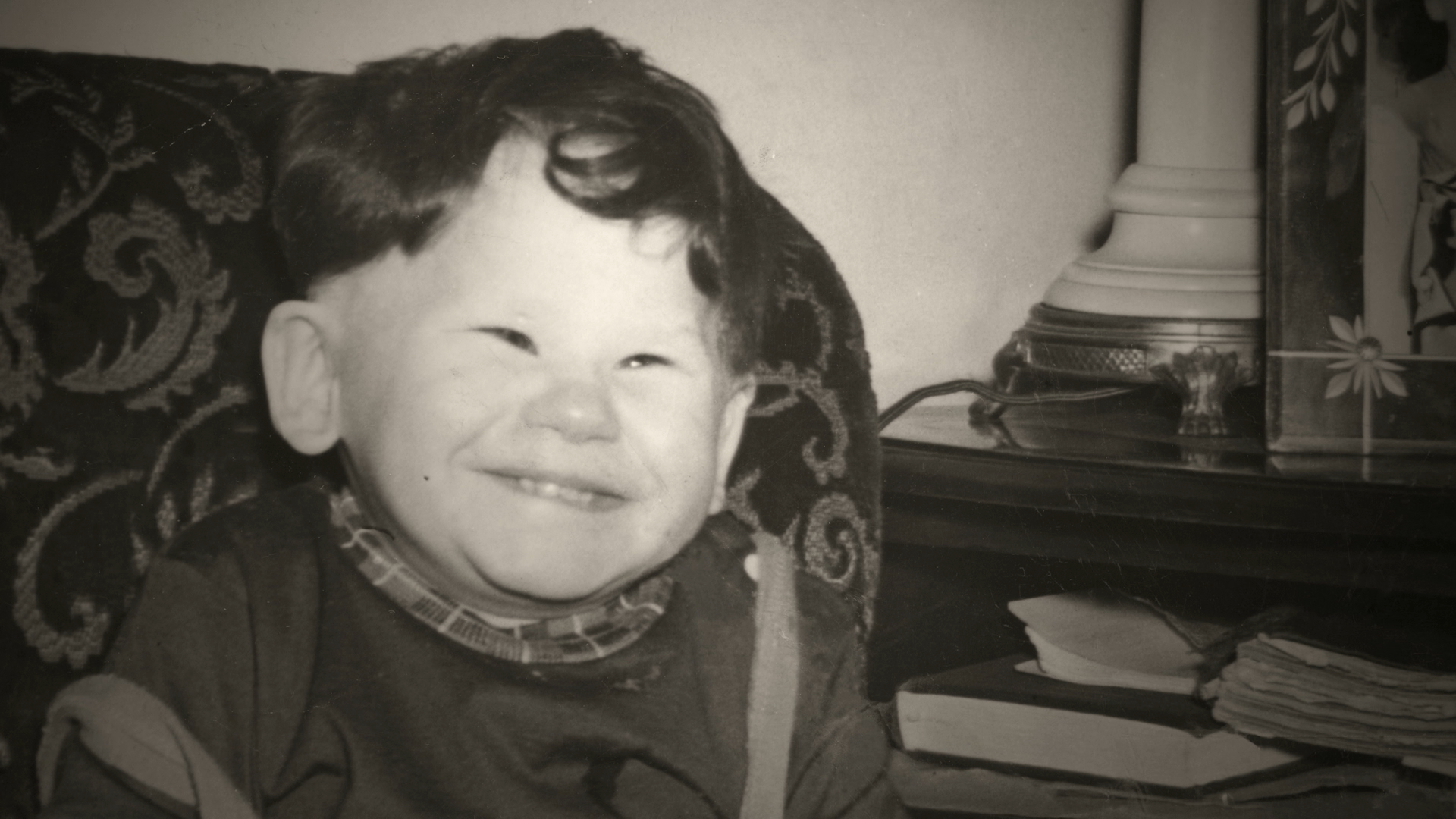




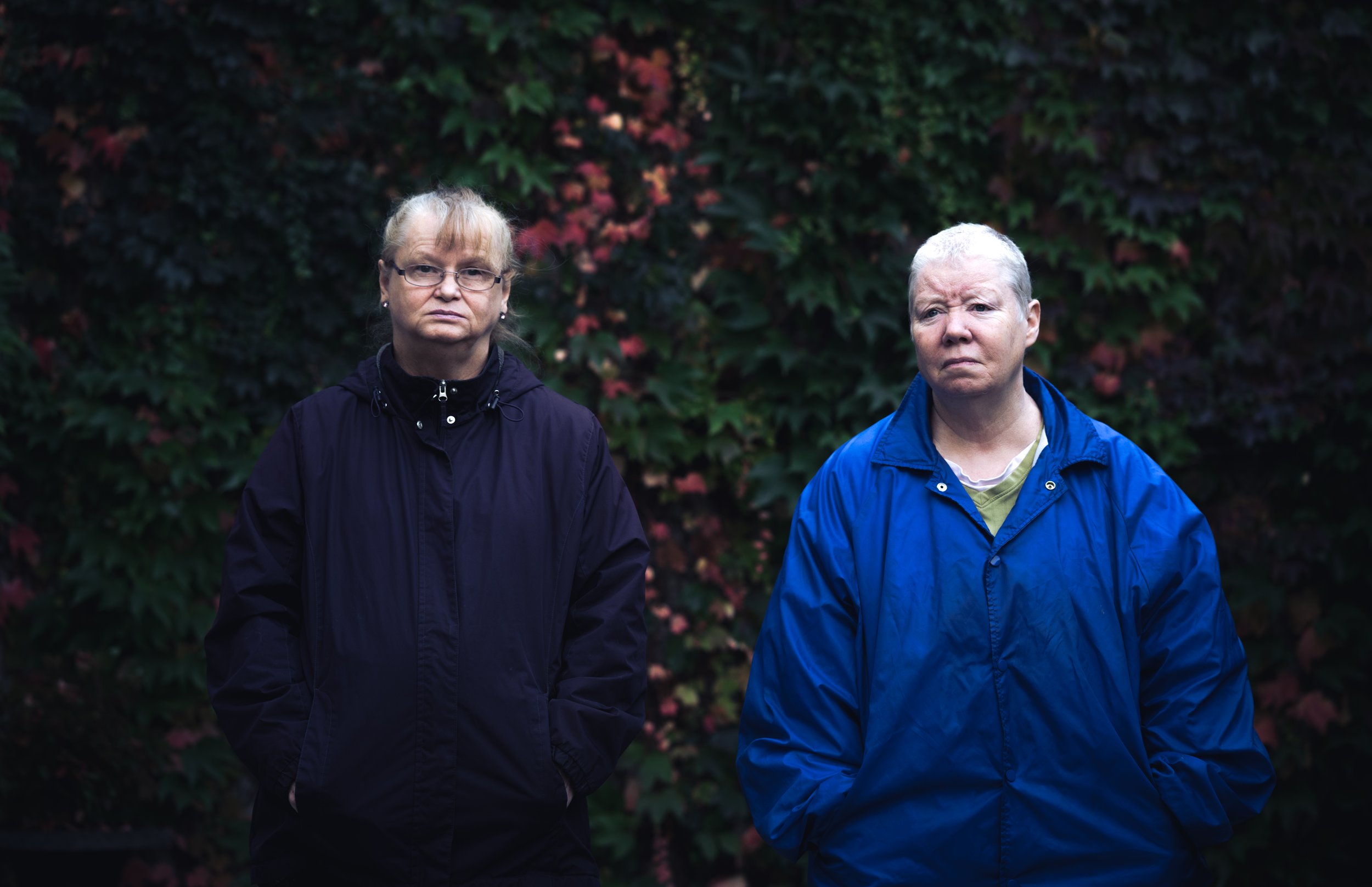
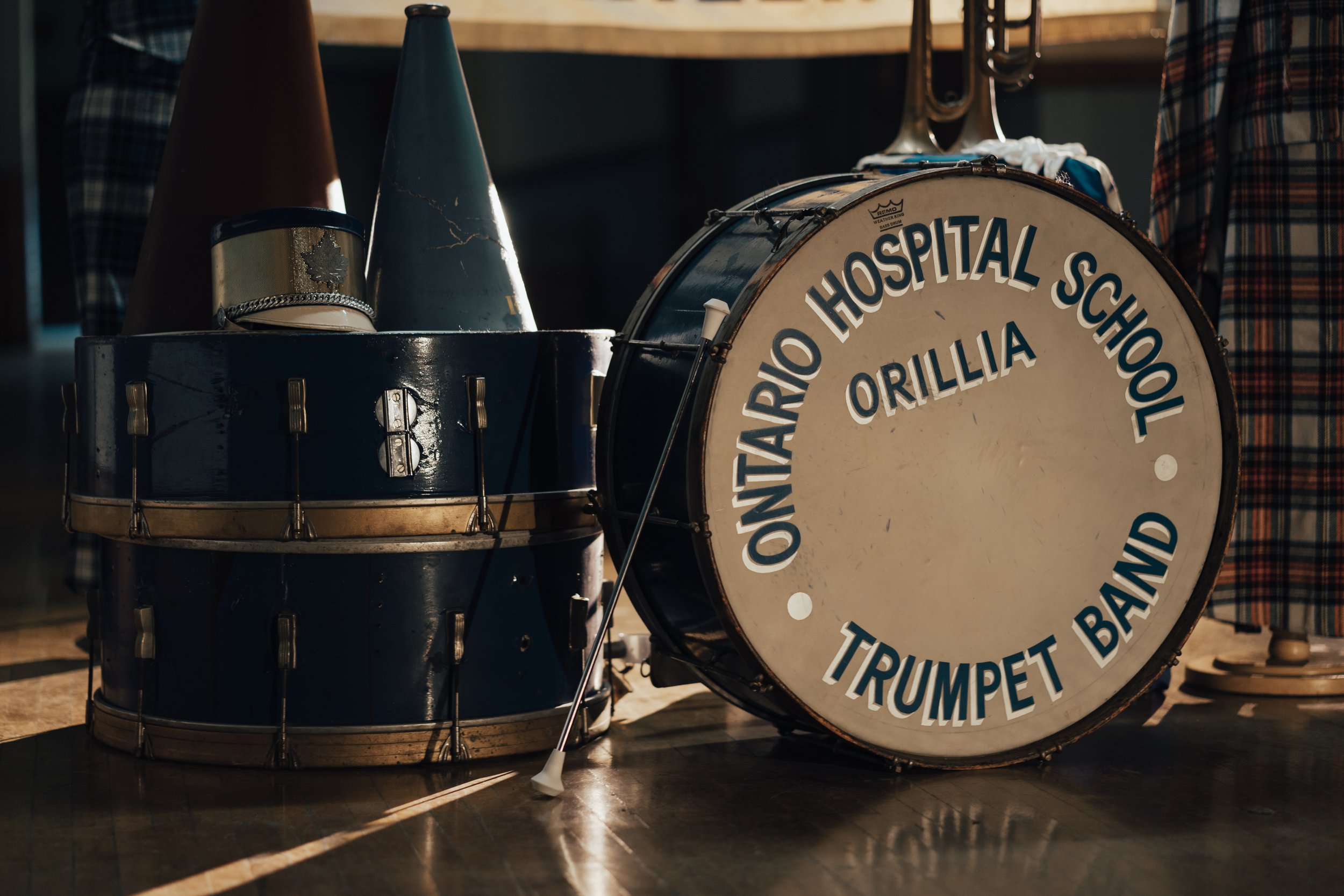

AWARDS & RECOGNITION
WINNER
2022 HOT DOCS CANADIAN INTERNATIONAL DOCUMENTARY FILM FESTIVAL
ROGERS AUDIENCE AWARD FOR BEST CANADIAN DOCUMENTARY
WINNER
2022 BRONX SOCIAL JUSTICE MATTERS FILM FESTIVAL
BEST FEATURE LENGTH DOCUMENTARY
WINNER - SARAH PEDDIE
2022 DIRECTORS GUILD OF CANADA AWARDS
BEST PICTURE EDITING IN A DOCUMENTARY
WINNER
2022 TOGETHER! DISABILITY FILM FESTIVAL
KAT AWARD FOR BEST DOCUMENTARY
NOMINEE
2023 CANADIAN SCREEN AWARDS
BEST ORIGINAL MUSIC, DOCUMENTARY
NOMINEE
2023 WRITERS GUILD OF CANADA SCREENWRITING AWARDS
DOCUMENTARY SCRIPT
NOMINEE
2022 DIRECTORS GUILD OF CANADA AWARDS
BEST DIRECTION OF A DOCUMENTARY
NOMINEE
2023 CANADIAN SCREEN AWARDS
BARBARA SEARS AWARD FOR BEST VISUAL RESEARCH
“exposes the horrors of Ontario institution”
•
Elisabetta Bianchini
YAHOO! NEWS
“REVEALING”
•
Jennie Punter
VARIETY
"Heartbreaking yet redemptive"
•
Jennie Punter
THE JOY OF MOVIES
"Powerful, Investigative"
•
"Powerful and Eye-opening"
•
"Tragic but true personal story"
•
"Gripping yet personal"
•
NOMINEE
2023 CANADIAN SCREEN AWARDS
BEST DIRECTION OF A DOCUMENTARY
Shayne Stolz
IN THE SEATS
Tyler Evans
ORILLIA MATTERS
NOMINEE
2023 CANADIAN SCREEN AWARDS
BARBARA SEARS AWARD FOR BEST EDITORIAL RESEARCH
PARTICIPANTS
-

PATRICIA (PAT) SETH
Huronia Survivor / Class Action Co-Litigant
Sent away at age 7 to live at the then-named the Ontario Hospital School in Orillia, Patricia Seth suffered an unthinkable range of abuses during her 10 years as a resident at the Huronia Regional Centre. Pat recalls: "When mom and dad let go of my hand, I remember I was so scared. I cried my eyes out."In 2010, Pat and her friend Marie Slark, also a former resident and survivor, became co-litigants of a landmark class action lawsuit against the Government of Ontario for the abuses and harms suffered by them and fellow residents while at Huronia. The lawsuit was quickly followed by similar suits brought by survivors of Southwestern Regional Centre in London, Ontario and Rideau Regional Centre in London, Ontario (along with twelve other Huronia-like institutions). Settlements totaled near $75 million in compensation.
Today, Pat is a disability advocate who has spoken out about disability rights and the history of Huronia to universities and organizations across Canada. She lives on her own in supportive housing in downtown Toronto and is active in her church community. Before retirement, Patricia led a life of work and marriage (now divorced).
-

MARIE SLARK
Huronia Survivor / Class Action Co-Litigant
Marie Slark was sent to live at Huronia in 1961 at the age of 7. "I was a ward of the Children's Aid Society and in the institution or group homes for thirteen years before I got discharged," she says. "They wanted total control over our lives."Like Patricia, Marie could have chosen a path to try and forget the harms of Huronia. Instead, she decided to compel those in power to confront an ugly legacy of abuse and institutional failure. Retired now from her job in retail, Marie lives with fellow survivor and half-sister Antoinette Charlebois, their two cats and a beloved Jack Russell terrier in downtown Toronto. Pre-pandemic, Marie travelled across Canada with a group of survivors, each of them telling their stories of being institutionalized and speaking out against the re-institutionalization and warehousing of disabled youth and adults in Long Term Care.
Marie and Antoinette are gifted knitters and crafts persons and have been creating outerwear for women and children in shelters. The knitted forget-me-knots that surround Huronia's cemetery were made by Marie and installed by survivors in 2018.
-

CINDY SCOTT & HAROLD DOUGALL
Huronia Survivors / Co-Founders, Remember Every Name
Cindy Scott and Harold Dougall are good buddies who still live in Orillia. They met after the class action was settled, while touring Huronia's empty halls and cemetery. It is especially hard for both to see those buildings still standing. "Just blow 'em up, tear it all down, " they say. Cindy was admitted to Huronia in 1971 at age 8 and lived there for two brief periods in the 1970s. Deaf at birth from a bout of maternal Rubella, Cindy says life was troublesome. In 1960, Harold was sent to Huronia at the direction of the Children's Aid Society's due to his learning disabilities when he was 12. Both Cindy and Harold suffered physical, emotional and sexual abuse while at Huronia.Both excelled in their adult lives thanks in part to their association with Special Olympics. Harold went on to study public speaking. Cindy spends her time on social media staying connected with other survivors while taking care of her retired mother.
In 2014, Harold and Cindy formed the Remember Every Name survivor group, to steer the construction of a monument within Huronia's cemetery to honour the dead -- many lying in unmarked graves. The monument is to serve as a testament to those who lived and died at Huronia and, symbolically, for all children who have suffered and continue to suffer in institutional settings. In 2017, Harold ran for Orillia City Council's Ward 2 as a disability advocate. He may yet run again in 2022.
-

BEV LINK AND BETTY BOND
Huronia Survivors / Remember Every Name Members
Bev and Betty met at the Huronia Regional Centre in the 1960's when their time overlapped with each other. Betty was 7 and a permanent "ward of the state" (as she puts it) and the elder Bev was 20 years old. Bev took care of Betty while on the K Cottage unit and their friendship has endured ever since. Both will tell you that neither knew nor learned what "love" was at Huronia. Thankfully, though, they had each other. For Bev, the scourge of living at the institution was made worse through the daily indignities of horrendous anti-Indigenous racism. However, her core kindness couldn't be destroyed despite unspeakable traumas. It's that kindness that saw Bev establish a successful career as a much-beloved health care assistant and volunteer in Bracebridge, Ontario. She often gave candy to staff and patients at the local hospital. Betty went to high school and enrolled in college courses, learning computers and animal welfare management. She is a tireless animal rescue advocate in Bracebridge. With the help of their friend and advocate Debbie Vernon, Bev and Betty are determined to properly mourn Huronia's dead, honour those buried at the cemetery, and share their collective stories. -

BRIAN LOGIE
Huronia Survivor / Remember Every Name Member
Survivor Brian Logie first tried to sue the Ontario government in 1993 for the abuse and neglect he suffered at Huronia. He got nowhere and realized it would be a costly and monumental task, so he was grateful when the class action finally emerged so that he could tell his story.Brian was sent to the institution at the age of 10 in 1962 when his family fell apart. His story represents what happened to many kids who had the misfortune of being born into poor and dysfunctional homes. Brian's memories of abuse and sexual assault are painfully vivid, and he has spent many years telling his story to support groups and agencies as well as advocating for justice. When Brian was discharged from Huronia as a teenager, he trained to become a master plumber. Brian is also an artist, sculpting with metal and wood. Brian is married to an insurance executive, has grown children and grandchildren, and enjoys his retirement on a farm in rural Ontario. Each Mother's Day, Brian makes an annual pilgrimage to Orillia to honour the dead at the Huronia's cemetery, along with other members and supporters of Remember Every Name.
-

CARRIEANNE (FORD) TOMPKINS
Huronia Survivor, Remember Every Name Member
Like Brian Logie, Carrieanne was sent to Huronia in the 1960s because of family dysfunction and poverty. Carrieanne spent nearly ten years in the institution. She has been active since 2014, speaking about her experiences and advocating for justice around the unmarked graves at the cemetery. Along with Harold, Cindy, Pat and Marie and other survivors, Carrieanne participated in a cabaret about Huronia in 2016. She also joined the Recounting Huronia Speakers Bureau to travel across the province and Canada – including trips to universities and the Museum of Human Rights in Winnipeg – to tell her story of abuse and survival. She is a widow, a mother, and a grandmother.Carrieanne lives in Brampton, Ontario, and can't wait to get safely back on the road again to raise awareness about the dehumanization and suffering of institutional life.
-

MARILYN DOLMAGE & JIM DOLMAGE
Class Action Litigation Guardians
Marilyn and Jim Dolmage were the Litigation Guardians for the Huronia Regional Centre class action lawsuit. Marilyn's brother, Robert, died while living at Huronia. In 2013, the Toronto Star's Carol Goar described Marilyn and Jim as "unsung heroes", for their tireless efforts during the class action and as disability rights advocates.
With Marilyn's extensive network of contacts, nurtured over many years advocating for people living with disabilities, Jim suggested launching the class action lawsuit and to actively support Patricia Seth's and Marie Slark's fight for justice. The Huronia class action lawsuit was the spark that ignited successive lawsuits brought by former residents of its sister institutions in Ontario, Southwestern Regional Centre and Rideau Centre.
As a social worker, Marilyn has helped close Ontario's institutions for good and has promoted effective inclusive education and personalized funding. Inspired primarily by her son Matthew's short but meaningful life, Marilyn works alongside disabled people and their families to end segregation and foster new supportive relationships. Marilyn is now writing a book of personal and professional reflections and poetry.
Jim Dolmage is a retired high school teacher who is currently advising survivor-litigants from the Manitoba Developmental Centre who have launched a class action lawsuit against the Manitoba Government for its alleged failure to protect residents from abuse and harm.
-

DEBBIE VERNON
Survivor Supporter / Remember Every Name Co-ordinator
Upon completing her studies at Georgian College, Debbie Vernon worked with people with developmental disabilities in Alberta and Ontario for several decades. Debbie's focus was helping people transition from institutions back into the community. Debbie shifted careers in 1999 to sell real estate in Muskoka, Ontario. Debbie continues to volunteer extensively and does advocacy work around disability and housing issues. Debbie is a co-ordinator for the survivor-led Remember Every Name group.
-

MITCHELL WILSON
Disability Advocate / Remember Every Name Member and Researcher
Mitchell Wilson is a disability activist originally from Toronto, Ontario. Mitchell is a multiply disabled person and has been active in the disabled community for nearly a decade. For five years, he has researched the history of Huronia Regional Centre, combing through hundreds of government records and historical newspaper articles, and talking to survivors and former staff members. This research has given Mitchell a deep understanding of day-to-day life at the institution and of the facility's role in Ontario's eugenics movement.
Mitchell has been involved in the survivor-led advocacy group Remember Every Name since 2015. He has played a key role in organizing the annual memorial at the Huronia Regional Centre Cemetery. In addition, he has produced videos of survivor testimony for Remember Every Name's YouTube channel. In 2020, Mitchell wrote a history of the Huronia Regional Centre for Remember Every Name's website. Mitchell is currently working with Kate Rossiter's group at Wilfrid Laurier University to create a robust research archive of Huronia Regional Centre survivor experiences.
-

HILARY CLARK COLE
Sculptor, Huronia Cemetery Memorial Monument
Hilary Clark Cole says she was humbled and honoured to be selected by the Remember Every Name survivor group in 2018 to build a 10-foot monument honouring the dead at Huronia's cemetery. Clark Cole is a leading Canadian sculptor who works mainly in hand-built and welded steel and bronzes of all dimensions. Over the last two decades, she's been celebrated for her one-of-a-kind pieces of nature and animals, most notably Muskox.
-

MADELINE BURGHARDT, PhD
Author, Broken: Institutions, Families, and the Construction of Intellectual Disability (McGill-Queens University Press, 2018)
Madeline Burghardt is the author of numerous articles and publications about the construction of disability, health policy, and gender. She is the author of Broken: Institutions, Families, and the Construction of Intellectual Disability, an exploration of the effects of institutionalization on people labelled "intellectually disabled" and on the lives of their families. Burghardt is an instructor in the graduate program in Critical Disability Studies in the School of Health Policy and Management at York University, is cross-appointed to York's graduate programs in Development Studies and Music and is an instructor of Disability Studies at King's University College at Western University. She has worked extensively with people labelled with intellectual disabilities in professional and artistic capacities and is an ally of the institutional survivor community. Burghardt's research interests include the geopolitics and histories of difference and disability. She lives in Toronto.
-

KATE ROSSITER, PhD
Chair, Department of Community Health, Wilfrid Laurier University, Ontario / Co-Author, Punishing Conditions: Institutional Violence and Disability (Routledge, 2019)
Kate Rossiter is an Associate Professor and Chair of the Department of Community Health at Wilfrid Laurier University in Ontario, Canada. She is one of the lead researchers working to create an extensive digital archive that captures the history and legacy of the Huronia Regional Centre. Rossiter was the principal investigator on the Recounting Huronia research project and co-author of Punishing Conditions: Institutional Violence and Disability (co-authored by Jen Rinaldi). Rossiter has also created and maintained several survivor-led narratives, including the Huronia Speakers Bureau and a cabaret performance about Huronia. She has authored multiple academic and non-academic articles on the Huronia Regional Centre, institutionalization, and violence. Rossiter lives with her family in Brantford, Ontario.
-
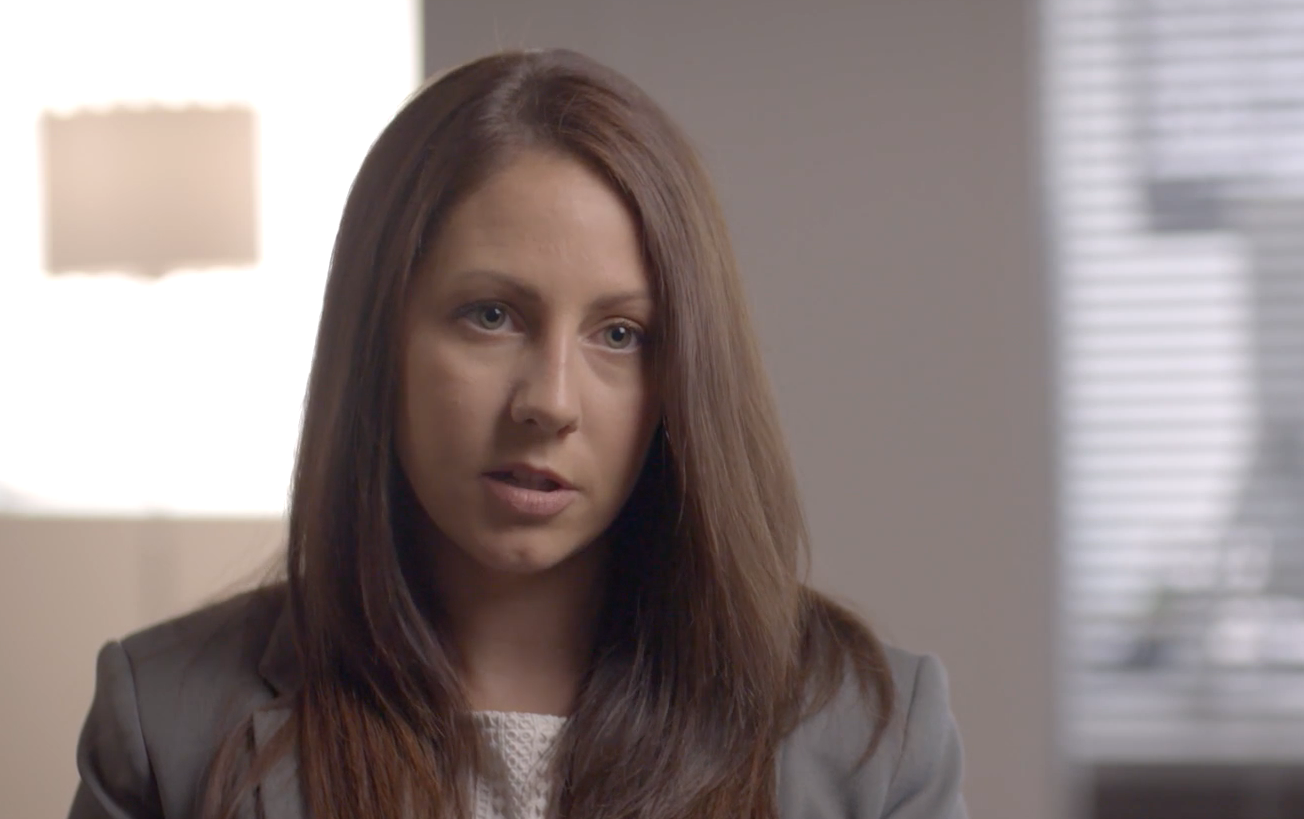
KATHARINE VISCARDIS, PhD
Former Lecturer at Trent University/ Instructor, Northern Lakes College/ Dissertation Author, The History and Legacy of the "Orillia Asylum for Idiots": Children's Experiences of Institutional Violence
In 2020, Katharine Viscardis completed her PhD in Canadian Studies at Trent University in Peterborough, Ontario. Having witnessed the horrors of child institutionalization while volunteering in a Bulgarian orphanage in 2010, Viscardis identified firsthand the foundations for the abusive conditions suffered by similarly institutionalized children in Canada. Her award-winning dissertation The History and Legacy of the "Orillia Asylum for Idiots" explores the history and legacy of Canada's first institution designed officially for children and adults with disabilities. In it, Viscardis outlines the violent experiences of children institutionalized there and identifies the many factors that allowed such violence to occur for so long in a state-run facility. It is planned for future publication and is one of the first of its kind to describe in detail the failure to bring to justice the manslaughter of Albert Morrison, an Indigenous teen who was killed at Huronia in 1953 and whose death was covered up for nearly forty years. Viscardis is currently an instructor at Northern Lakes College in Alberta. She plans to continue her contribution to the research of institutional violence and disability studies.
-

MARSHALL COHEN
Filmmaker's Older Brother and "Sleuth"
Born in Toronto in the mid-1950s, Marshall arrived right in the middle of the chaos over the lives and fate of his brothers Alfie and Louis (children of his father's first marriage). Marshall always felt that something from around from that time "didn't add up". In Unloved, Marshall shares his thoughts and reactions to reviewing his brothers' patient records for the first time. He remembers the first funeral he ever attended in 1973, when brother Alfie was buried. But for Marshall, the fate of little Louis remained a mystery. For the longest time, Marshall led the hunt to find out where Louis was buried, but the trail always ran cold. Marshall is convinced that both brothers died from neglect and indifference.
Marshall is a real estate broker in North York, Ontario and is married to young adult author Ella Burakowski (Hidden Gold). He's a lay historian of his family tree and a passionate advocate for Holocaust Remembrance.
-

ADELE PERRIN (née COHEN)
Alfie's and Louis's Sister / Filmmaker's Half-Sister / Mother of Samuel
Adele is a retired Board of Education media librarian and currently lives in Newmarket, Ontario. She was born after Alfie and before Louis, so she barely remembers her brothers before they were taken away. Adele was only 3 years old when Louis was sent to Huronia and was never told about the true circumstances of his death. Where it not for Adele alerting the filmmaker to the class action settlement, Unloved might not have come to be. And she was determined to accompany her sister, the filmmaker, during the filming of the first tour inside Huronia in 2014. Adele felt a haunting sadness and pain while walking through the halls where her brothers once lived and ultimately died.
Adele is the loving and proud mom of her son Samuel, a 48-year-old resident of a group home in Scarborough, Ontario. Sam enjoys long holidays, spending weekends and summers with his mom, exploring nature and has a passionate interest in trains.
-

ERIC COHEN
Filmmaker's Younger Brother
Eric was very close to his father Morton Cohen. Eric had the rare experience of being the only Cohen sibling to visit the Huronia Regional Centre in the early 1970s on one of the rare trips undertaken by his father to see Eric's half-brothers Alfie and Louis. Eric's memories, insights, and humour form a vital perspective on the secrecy and shame about his brothers.
Eric studied Criminology and Mathematics at the University of Toronto and graduated on the Dean's List. Eric lives with his family in North York, Ontario. He and his wife Jennifer work to raise awareness to the rare childhood disease Loeys-Dietz Syndrome.
TAKE ACTION
-

Remember Every Name
Remember Every Name is a group led by survivors of the Huronia Regional Centre that was open in Orilllia from 1876 - 2009, and the site of horrific abuse.
-

Inclusion Canada
Inclusion Canada leads the way in building an inclusive Canada for people with an intellectual disability and their families by strengthening families, defending rights, and transforming communities into places where everyone belongs.
-

DiStory
DiStory is a group of self-advocates and educators working together to reclaim and teach others about intellectual disability history.
-

People First of Canada
People First of Canada (PFC) is the national voice of people who have been labelled with an intellectual or developmental disability. The vision of PFC is to see all citizens living equally in the community. We support this by sharing our personal stories, peer support, developing leadership skills, advocating for our right to choose where and with whom we live, and by ensuring that our voices are heard and respected.
-

Exclusion To Belonging
Exclusion to Belonging houses three web-based projects developed by L’Arche Toronto
-

Reva Gerstein Legacy Fund
The fund is used to help projects that are run by and for psychiatric survivors. It reflects her interest in education, research, and other projects that support the independent spirit of the psychiatric survivor community. The fund is dispersed annually by a committee consisting of the Executive Director, representatives of the board and an outside representative from the psychiatric survivor community.
-

RECOUNTING HURONIA ARCHIVE
An archive of photography, institutional records, interviews, and artwork that is meant to help people understand the history of the Huronia Regional Centre and other institutions like it.
PREVIOUS SCREENINGS
Screening Rights Film Festival
Coventry, UK
Windsor International Film Festival
Windsor, ON
documentary Channel
Broadcast
Western University
London, ON
Siblings Canada Panel
Online
The Screening Room
Kingston, ON
Massey College
Toronto, ON
Together! Film Festival
London, UK
Laurier Milton Lecture Series
Milton, ON
Hot Docs
Toronto, ON
RealAbilities Film Festival
Toronto, ON
Lunenburg Doc Fest
Lunenburg, NS
People First of Canada
Nanaimo, BC
Winnipeg, MB
St. Johns, NL
Tillisonburg, ON
Regina, SK
Whitehorse, YK
HOST A SCREENING
Interested in organizing a community screening of Unloved: Huronia’s Forgotten Children?
Please fill out the form below and we will get back to you.










